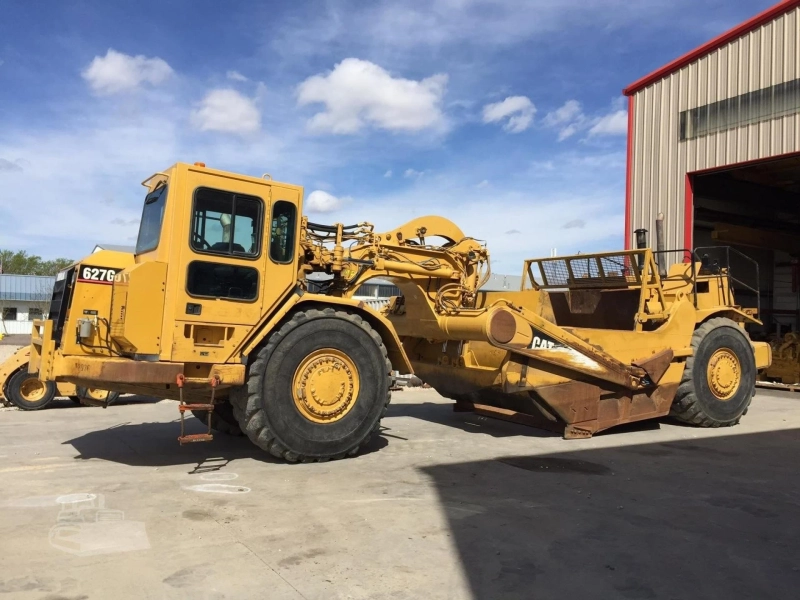Selecting the appropriate parts is essential to maintaining the smooth operation of your machinery. Whether you're replacing worn-out components, upgrading your equipment, or seeking a specific part for a repair, understanding what to look for when buying equipment parts can save you time, money, and unnecessary headaches. The market is flooded with numerous suppliers, brands, and part types, making the selection process overwhelming. Nonetheless, a few crucial elements can guarantee the longevity and effectiveness of your equipment and assist you in making an informed choice.
1. Quality And Durability
The most important factor when purchasing equipment components is the quality of the parts. When purchasing heavy equipment parts, it's essential to prioritize quality, compatibility, and supplier reputation to ensure the longevity and efficient operation of your machinery. Your machinery's overall performance and lifespan are directly impacted by the parts' longevity and durability. Low-quality or counterfeit parts might be cheaper, but they often wear out faster, which can lead to frequent repairs and unnecessary downtime.
It's essential to choose parts that are specifically designed for your equipment model. High-quality parts from reputable manufacturers ensure that your machinery operates at its best, reducing the risk of malfunctions and extending its service life. Because they guarantee that the parts fulfill the requirements for strength, performance, and safety, brands with a track record of producing long-lasting parts are frequently a dependable option.
2. Compatibility With Your Equipment
Compatibility is a critical consideration when selecting new parts for your machinery. Before making a purchase, you must verify that the parts are compatible with the make, model, and year of your equipment. Even slight variations in part dimensions or specifications can affect the functionality of your equipment.
Consult the machine's manual or speak with a technician to identify the exact part numbers you need. Buying components that don't match your machine can lead to inefficiency, decreased performance, or even potential damage to other parts. To avoid these issues, ensure the parts are specifically designed for your machine model or come with a compatibility guarantee from the supplier.
3. Cost And Value For Money
While it's tempting to go for the least expensive option when replacing equipment components, the cost should not be the only consideration. When choosing parts, focus on the value for money rather than simply the price tag. A lower-priced part might save you money upfront, but if it fails sooner than expected, you may end up spending more on repairs, replacements, or downtime.
Achieving an equilibrium between cost and quality is crucial. Sometimes, spending a little more on a high-quality, long-lasting part can save you from frequent repairs and replacements, ultimately leading to greater savings in the long run. Look for reputable suppliers who offer a combination of fair pricing and high-quality products that can withstand the demands of heavy-duty use.
4. Warranty And Return Policies
A reliable supplier should offer a warranty or guarantee on their parts. A warranty ensures that you can return or exchange defective parts without incurring extra costs. In order to protect against manufacturing defects and guarantee that the parts will last as long as anticipated, look for products with a reasonable warranty period when purchasing machinery components.
Examine the supplier's return and exchange policies in addition to their warranties. If the part turns out to be incompatible or defective, it's essential to have a hassle-free process for returns or replacements. This can save you time and effort if you encounter any issues after purchasing the part.
5. Brand Reputation And Supplier Reliability
The dependability and caliber of the equipment components are greatly influenced by the supplier's and brand's reputation. Well-established brands with positive customer reviews are more likely to offer high-quality components that meet your standards. You can also read reviews or get referrals from other companies in your sector to learn more about the supplier's reputation.
A trustworthy supplier should have a solid reputation for on-time delivery of dependable, high-performing parts. Additionally, they should provide excellent customer support in case you need help with any technical issues, compatibility concerns, or after-sales service.
6. Customer Support and Technical Assistance
Purchasing the right parts is only part of the equation. A great supplier should offer robust customer support and technical assistance to ensure that you’re selecting the best components for your equipment. If you have any questions about the installation, functionality, or maintenance of parts, reliable customer service can help resolve any issues quickly.
Conclusion
Selecting the right parts for your machinery requires careful consideration of several factors, including quality, compatibility, pricing, and supplier reliability. By concentrating on these crucial elements, you can make sure that the parts you purchase will prolong the life and effectiveness of your machinery, which will ultimately enhance your company's operations.


